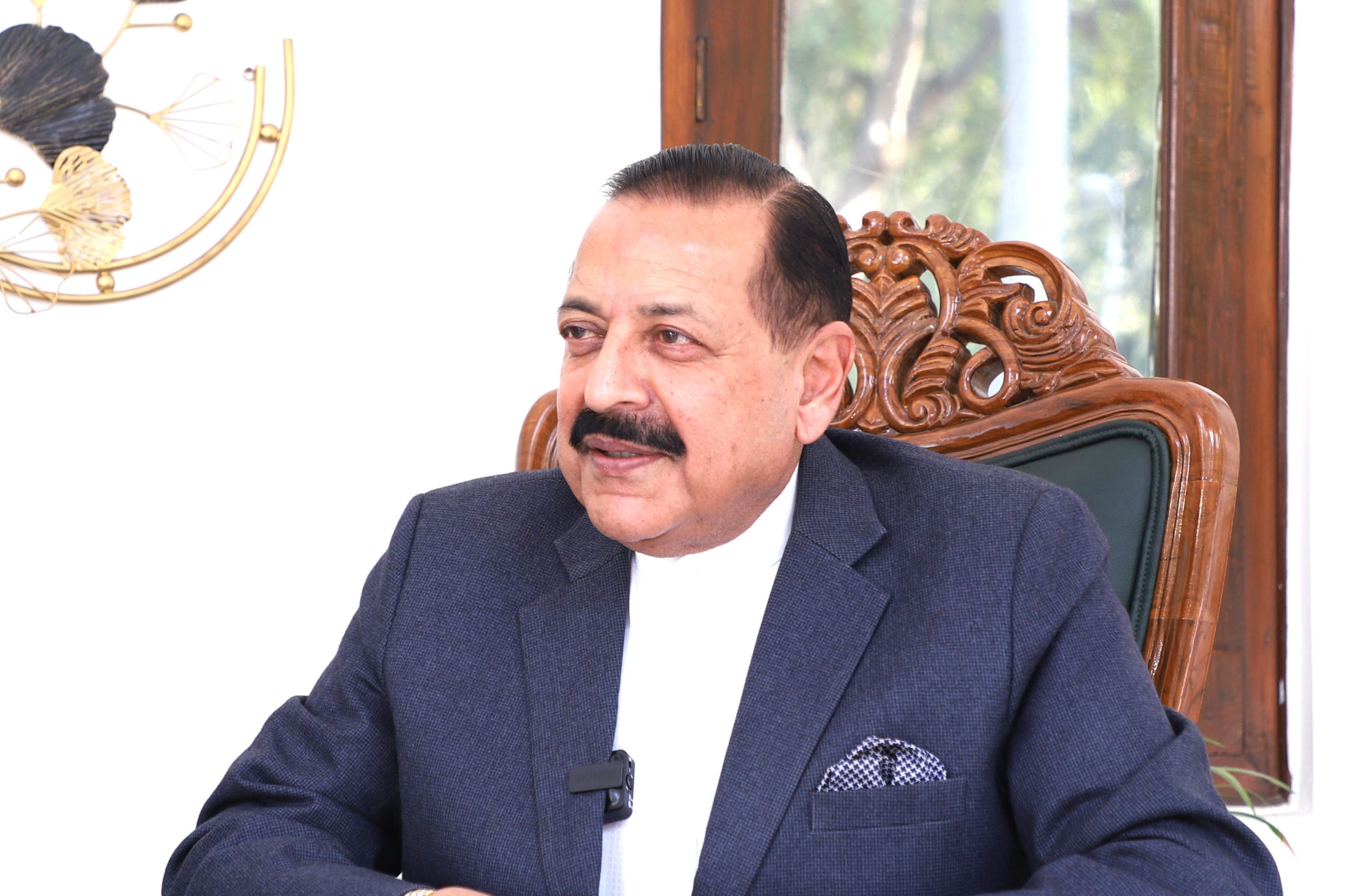NEW DELHI, Feb 19: Union Minister of State (Independent Charge) for Science and Technology, Earth Sciences, and PMO; Department of Atomic Energy, Department of Space, Personnel, Public Grievances and Pensions, Dr. Jitendra Singh emphasized that India is now leading rather than following, guiding other nations to follow its example.
In a captivating podcast, Dr. Jitendra Singh explored various facets of his character, including his passion for literature and poetry, his extensive knowledge of cinema, and a wealth of interesting anecdotes about renowned figures. Most notably, he expressed pride in witnessing India, under Prime Minister Narendra Modi, set global standards and drive innovative ideas across various sectors. He underscored the significant progress India has achieved in recent years in fields such as Space, Biotechnology, and Nuclear Energy, establishing itself as a key player on the global stage.
Dr. Jitendra Singh highlighted the remarkable transformation of India’s Space sector, marked by an increase in ambitious missions and international partnerships. The Space Docking Experiment (SpaDeX) exemplifies India’s technological advancements, laying the groundwork for future missions including Gaganyaan, Chandrayaan-4, and the Bharatiya Antariksh Station, which will serve as India’s forthcoming international space station.
India has also positioned itself as a favored location for satellite launches, bolstering its global reputation, stated the Minister. The country has successfully deployed 433 foreign satellites, with 396 launched in the last decade, generating $157 million and over €290 million from 2014 to 2023.
He pointed out that the historic success of Chandrayaan-3, which made India the first nation to land near the Moon’s south pole, has elevated ISRO’s status in lunar exploration. Major global space agencies, including NASA, are now eagerly awaiting the findings from the Moon’s southern pole, a significant achievement that highlights India’s emerging prominence in space research.
Dr. Jitendra Singh also noted India’s groundbreaking contributions in biotechnology and bioeconomy. India was the first country to create a DNA-based COVID-19 vaccine, showcasing its leadership in vaccine R&D. Additionally, India introduced the first herpesvirus vaccine for cervical cancer, further solidifying its role as a leader in preventive healthcare, he stated.
He noted that India’s bioeconomy has expanded from $10 billion in 2014 to nearly $140 billion today, with predictions to reach $250 billion in the near future. The number of biotech startups has soared from just 50 in 2014 to almost 9,000 today, turning India into a global hub of biotech innovation. In bio-manufacturing, the country now ranks third in the Asia-Pacific region and 12th globally, with its influence rapidly growing, he added.
Dr. Jitendra Singh remarked that India’s Nuclear energy program, once viewed with skepticism, is now recognized for its peaceful and sustainable ambitions. The country has set an ambitious goal of achieving 100 gigawatts of nuclear energy by 2047, aiming to reduce carbon emissions by 50%, a commitment that is impacting global climate initiatives. The world has acknowledged India’s nuclear policy, originally envisioned by Homi Bhabha for peaceful purposes, as a model for responsible energy development.
What could be more gratifying, he asked, than the realization that India now ranks fourth globally in scientific publications, with the potential to surpass the United States by 2030 and become the leading nation in scientific output.
Revisiting the achievements in the Space sector, Dr. Jitendra Singh stated that India’s space economy is projected to expand by 5 to 10 times in the next decade, further reinforcing its leadership. The nation’s swift economic growth is evident in its global rankings, including 12th in bio-manufacturing and fourth in scientific research publications.
In conclusion, Dr. Jitendra Singh emphasized that India’s ascent is not just about catching up but about setting the global agenda. “The clock has turned 360 degrees. In the past, we learned from others; now, the world is looking towards us. The exchanges are mutual,” he remarked.


Leave a Reply